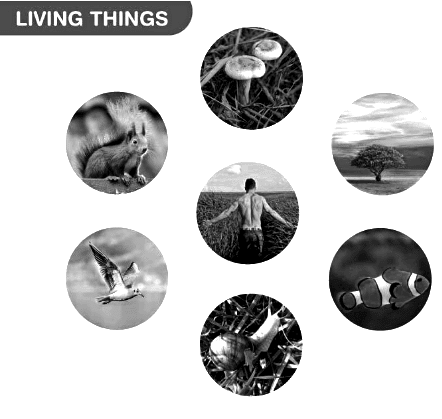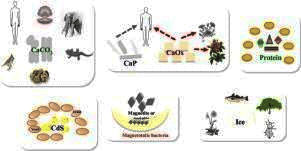Class 10 Exam > Class 10 Notes > Biology Class 10 ICSE > Revision Notes: Basic Biology
Revision Notes: Basic Biology | Biology Class 10 ICSE PDF Download
Biology is the study of living things and how they function.

1. Cellular Structure
- All living things are made up of cells.
- Protoplasm gives cells their shape.
2. Metabolism
- Metabolism includes anabolism (building up ) and catabolism (breaking down ).
3. Growth, Repair, and Regeneration
- Growth adds new protoplasmic material and is permanent and irreversible.
- Repair replaces worn-out cells and heals injuries.
- Some organisms can regenerate body parts, like lizards regrowing their tails.
4. Respiration
- Respiration is a catabolic process where organisms take in oxygen, oxidize organic substances, and release carbon dioxide, water vapor, and energy.
5. Movement
- Movement is any change in the position of a body part.
- For example, plants grow roots away from light, while stems, leaves, and flowers grow towards light.
- Amoeba moves by extending pseudopodia.
6. Nutrition
- Nutrition is the process of taking in food and using it for growth and tissue replacement.
- Feeding, digestion, and assimilation are parts of nutrition.
- Green plants make their food through photosynthesis, using carbon dioxide and water in the presence of sunlight.
7. Excretion
- Excretion is the removal of harmful waste products produced by the organism's metabolism.
8. Irritability
- A stimulus is any change in the environment that an organism responds to.
- Irritability is the ability of an organism to respond to stimuli in a specific way, such as plants responding to light and gravity.
9. Reproduction and Evolution
- Living organisms can produce new individuals that resemble them in essential characteristics.
10. Life Span and Death
- Life span is the period during which an organism completes its life cycle.
Differences between Living and Non-living Things
Living Things:
- Cellular Organization: All living things are made up of cells, which are the basic units of life.
- Growth: Living organisms grow in size or complexity over time.
- Reproduction: They have the ability to reproduce, either sexually or asexually.
- Metabolism: Living things carry out chemical reactions, such as breaking down food for energy (respiration) and building substances (synthesis).
- Response to Stimuli: Living organisms can respond to changes in their environment, like light, temperature, or pressure.
- Adaptation: Over generations, living things can adapt to their surroundings through evolution.
- Homeostasis: Living things can maintain a stable internal environment, despite changes in external conditions.
- Movement: While not all living things move in the same way, most can move, or at least parts of their body (e.g., plants grow toward light).
Non-Living Things:
- No Cellular Organization: Non-living things don’t have cells or any organized structure like living organisms.
- No Growth: They do not grow or develop; they remain the same size or shape unless altered externally.
- No Reproduction: Non-living things cannot reproduce on their own.
- No Metabolism: They do not engage in chemical reactions for energy or synthesis.
- No Response to Stimuli: Non-living things do not respond to changes in their environment in a biological sense.
- No Adaptation: Non-living things don’t evolve or change to adapt over time (though they can be altered by external forces).
- No Homeostasis: Non-living things do not maintain a stable internal environment.
- No Movement: Non-living things do not move on their own, although they can be moved by external forces.
Differences between the Growth of a Living Organism and the Growth of a Crystal

Growth of a Living Organism
- Growth occurs by cell division.
- Growth is irreversible.
Growth of a Crystal
- Growth occurs by the addition of similar material.
- Growth is reversible.
The document Revision Notes: Basic Biology | Biology Class 10 ICSE is a part of the Class 10 Course Biology Class 10 ICSE.
All you need of Class 10 at this link: Class 10
|
55 videos|189 docs|21 tests
|
FAQs on Revision Notes: Basic Biology - Biology Class 10 ICSE
| 1. What are the main differences between living and non-living things? |  |
Ans.Living things exhibit characteristics such as growth, reproduction, metabolism, response to stimuli, and adaptation to their environment, while non-living things do not possess these characteristics. For example, plants and animals grow and reproduce, whereas rocks and water do not.
| 2. How do living organisms grow compared to crystals? |  |
Ans.Living organisms grow through cellular division and differentiation, where cells increase in number and change to perform specific functions. In contrast, crystals grow through a process called crystallization, where molecules arrange themselves in a structured pattern but do not undergo cellular processes.
| 3. What is metabolism and how is it related to living things? |  |
Ans.Metabolism refers to the chemical processes that occur within living organisms to maintain life, including converting food into energy and building cellular structures. This is essential for growth, reproduction, and response to environmental changes.
| 4. Can non-living things ever exhibit characteristics similar to living things? |  |
Ans.Non-living things cannot truly exhibit characteristics of living things, as they lack biological processes. However, phenomena such as movement (e.g., wind, water flow) or changes in temperature can mimic some behaviors of living systems, but they do not involve any life processes.
| 5. What role do stimuli play in the life of living organisms? |  |
Ans.Stimuli are changes in the environment that living organisms can detect and respond to. This ability to respond to stimuli is crucial for survival, as it helps organisms adapt to their surroundings, find food, escape predators, and reproduce.
Related Searches















